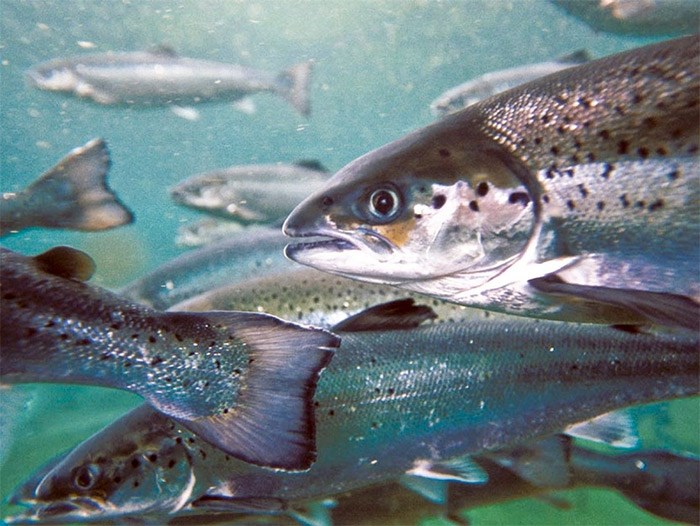 Atlantic salmon being raised at a B.C. fish farm. Photograph By Marine Harvest Canada
Atlantic salmon being raised at a B.C. fish farm. Photograph By Marine Harvest Canada
Environmentalists want a fish-farm company’s application to dump pesticides in the ocean near Tofino to be blocked.
Clayoquot Action co-founder Dan Lewis has started a petition calling on B.C. Environment Minister George Heyman to deny aquaculture company Cermaq Canada a pesticide permit to remove sea lice.
Such pesticide use is not uncommon in the fish-farming industry. Companies are required to notify the public when they put in an application for their use.
“Sea lice adapt to any new pesticide and they’ll adapt to this one,” and that means different, potentially stronger pesticides will be needed in future, Lewis said.
He said the substance affects a mucous layer on fish, causing stress and making them more vulnerable to viruses and disease.
“We think the Clayoquot Sound [UNESCO] Biosphere Reserve is no place to dump pesticides,” Lewis said.
Cermaq, which has farms in Fortune Channel, Bedwell Sound, Cypress Bay, Herbert Inlet, Millar Channel and Shelter Inlet, applied to use pesticides for the topical removal of sea lice beginning in January.
The company could not be reached for comment.
On its website, Cermaq says the company has no plans to use the treatment at any particular site, but applied to have it as an option.
Sea lice are naturally occurring parasites of fish and can cause them to die if not controlled. Critics of fish farms say the farms are incubators for the parasites and spread them to wild stocks that are already in decline.
A 2013 Department of Fisheries and Oceans research paper says little information is available on the toxicity of hydrogen peroxide to marine organisms.
It says bath treatments against sea lice have been “inconsistent” with the effectiveness depending on water temperature.


